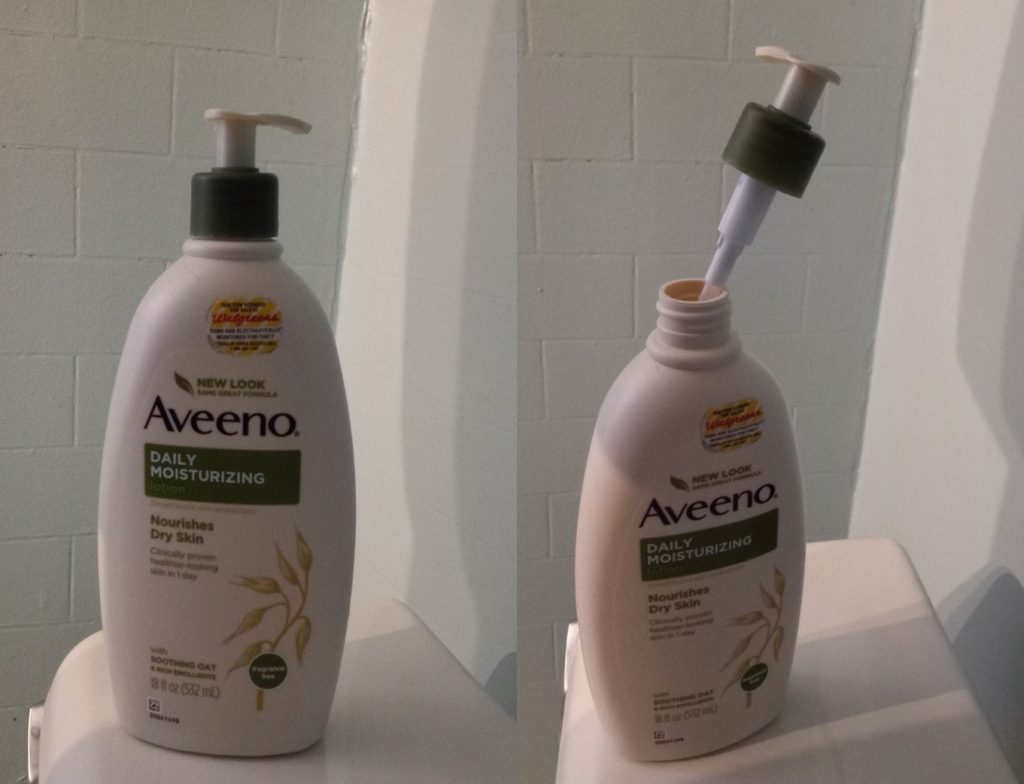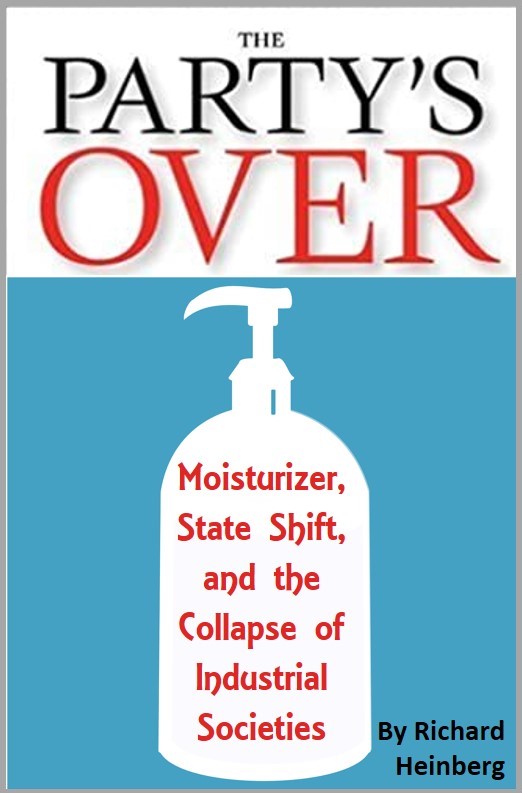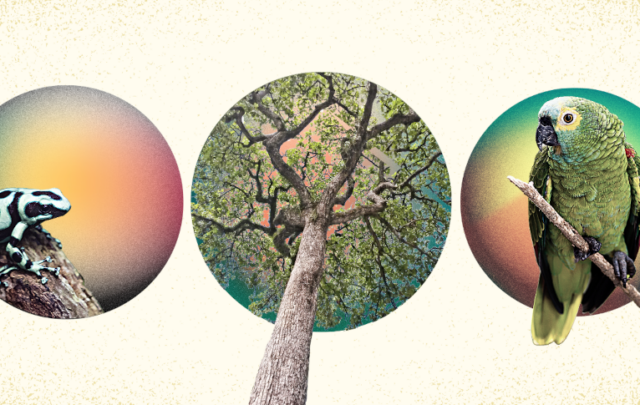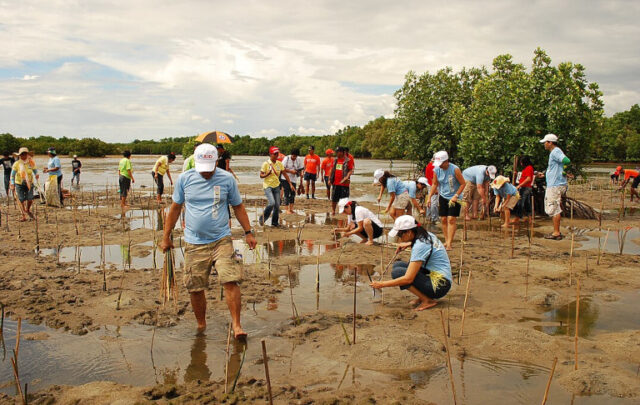A while back my wife and I tripped over a funny comedian, Sheng Wang, on Netflix. He had a drawly quality and offered wry and often innocent observations about the banalities of modern life. At one point in his routine, he did this bit about how he feels rich from having discovered economy-size body lotion, “a big ol’ container…with a convenient pump on top.” Now, Wang explained, he can now moisturize his whole body. (Before, he was frugal, and since he went top to bottom, his “legs paid the price”.)
Funniest about that was his observation that “about two-thirds into the bottle the technology collapses.” “At that point,” Wang mused, “you have to unscrew the bottle and use the pump as a dipstick,” wiping it along your body to moisturize.
As Wang observed, “Going from pumping to dipping, that’s a humbling transition.” “When I’m pumping, I feel rich,” he explains. “When I’m dipping, I feel like ‘Oh I’m an intelligent animal. I can use tools.’”
The audience, clearly familiar with this transition, laughed uproariously. As did I. I get really dry skin in the winter and moisturizing prevents significant discomfort, so I have my own pump-action moisturizer bottle. Just a few days ago, my bottle started going through its own inevitable failure, which this time was more funny than annoying because of Wang’s observations.
But there’s one additional subtlety I want to comment on. Before the pump technology collapses, there’s a point where the pump works, then doesn’t work. It pumps blanks. But if you push hard, if you stir things around, if you shake things up, it will often work again for a while. It’s that stage, where you have yet to resign yourself to dipping—i.e. to innovating a new way to get the lotion you need—that one tends to get agitated.
And it was at that moment that I realized that this pump technology failure isn’t just a riff on the amusing nature of our shared quotidian experiences but actually a good metaphor for societal collapse!
 Before societal collapse and during societal collapse….
Before societal collapse and during societal collapse….
Societal Collapse
Yes, I’ve written on this subject before, making the case that we’re already living with collapse (in 2020) and more recently exploring the polycrisis (and even the permacrisis). But this feels like a much easier metaphor to grapple with!
Truthfully, for affluent humans, ones who have been mostly insulated from ecological, economic, and political system breakdowns, we can still readily buy solutions to most of our problems (at least for now): from food to sate hunger, medicine to treat diseases (many of which stem from our other purchases or ecological damage perpetuated by this industrial-consumer system), or even entertainment to keep us amused and not looking up at the impending doom heading our way (thanks Netflix). And when the pump fails, well, we pump a while, shake the bottle, maybe use the dipstick approach, but ultimately it’s no big deal because we can always get another bottle (and if 10% of the moisturizer is lost, well “that’s not my fault,” it’s just poor industrial design).
But there is a feeling of uncertainty when the pump first fails, when it stops working smoothly, when you want to keep the current system—the one that makes you feel rich—working. You stir things up, you try to keep it all going. You don’t just resign yourself immediately to dipping. And when your interventions work, that’s great—the good times keep rolling. And when they finally stop working, well, you resignedly get out the dipstick.

Certainly not as dramatic as when the oil stops flowing (as Heinberg actually discusses), but people love their moisturizer!
That’s where we are today. We’re shaking up the societal moisturizer bottle. We’re investing billions in carbon capture and storage, in renewables, in electric vehicles, in anything that can keep the party going. In reality, of course, we need to be redesigning things to celebrate the slow way. To metaphorically encourage people to always dip and never get used to pump-action moisturizer.
Yes, there are literal stories of this—containerless stores, where people bring in reusable packages to get everything from detergent to honey (and probably moisturizer too). But I’m more referring to the whole mindset, where we learn to sacrifice convenience for sustainability and conviviality. This is not a new idea, of course. The Slow Food movement is the best example—a 37 year-old movement encouraging people to cook and eat with friends, slowly, joyfully, with all-natural local ingredients, instead of eating unhealthy, unsustainable junk food wrapped in toxic packaging while driving in your car. The degrowth movement more generally encourages slowing down—working less, earning less, driving less (and playing more, helping the community more, and walking more).
Is There a Way to Encourage This Transition?
The challenge is, in a culture celebrating the economy-sized convenient pump action bottle, how do we normalize the dipstick method? Or do we resign ourselves to prepare for when the societal moisturizer bottle fully fails and people start searching for new ways to moisturize? Perhaps when supply chains break down and moisturizer shelves are empty at stores, neighbors will teach others how to make a salve from plant oils, beeswax, and oils from local herbs like plantain. Or a local farmer will start selling lanolin from her sheep again. You’ll definitely apply those by hand—like Sheng Wang applies his expensive eye cream: dabbed carefully just a little bit at a time with his lazy ring finger.
Yes, the days of feeling rich will be over, but hopefully the days where all of us suffer from continuing dry skin as we didn’t adapt and build sustainable, local alternatives will not be what takes its place. Hopefully instead, we’ll create alternatives that are sustainable and serve our needs, and if we do, perhaps a new richness will be found in the knowledge that we can make our own moisturizers and work with our neighbors and communities to develop the items we truly need to make our lives better, and not at the expense of others or the planet.

Perhaps we’ll be forced to return to mud baths and vigorous scratching, but hopefully our innovative minds will keep our skin moist and itch-free. (Image from pen_ash via Pixabay)





